
IPCAI 2021
The 12th International Conference on Information Processing in Computer-Assisted Interventions
June 22-23, 2021
Find Out More
The 12th International Conference on Information Processing in Computer-Assisted Interventions
June 22-23, 2021
Find Out More
|
Regular Paper submission deadline (passed) |
18 December 2021: |
Start of author notification on review feedback and early decisions |
|
Long Abstract submission deadline (passed) |
24 February 2021: |
Notification of decisions |
22-23 June 2021: |
IPCAI 2021 |
Registration for IPCAI through the CARS website:
RegistrationYou can also follow the IPCAI news on Twitter: @IPCAI_conf
The Information Processing in Computer-Assisted Interventions (IPCAI) is one of the most important forums for innovation in the domain of computer-assisted surgery. The IPCAI conference is a truly international interdisciplinary conference bringing clinicians, computer scientists, engineers, and other researchers at a unique setting. The format of the meeting is designed specifically for active engagement from the attendees.
The next IPCAI meeting is intended to be on June 22-23, 2021, in conjunction with the Computer-Assisted Radiology and Surgery (CARS) Congress 2021.
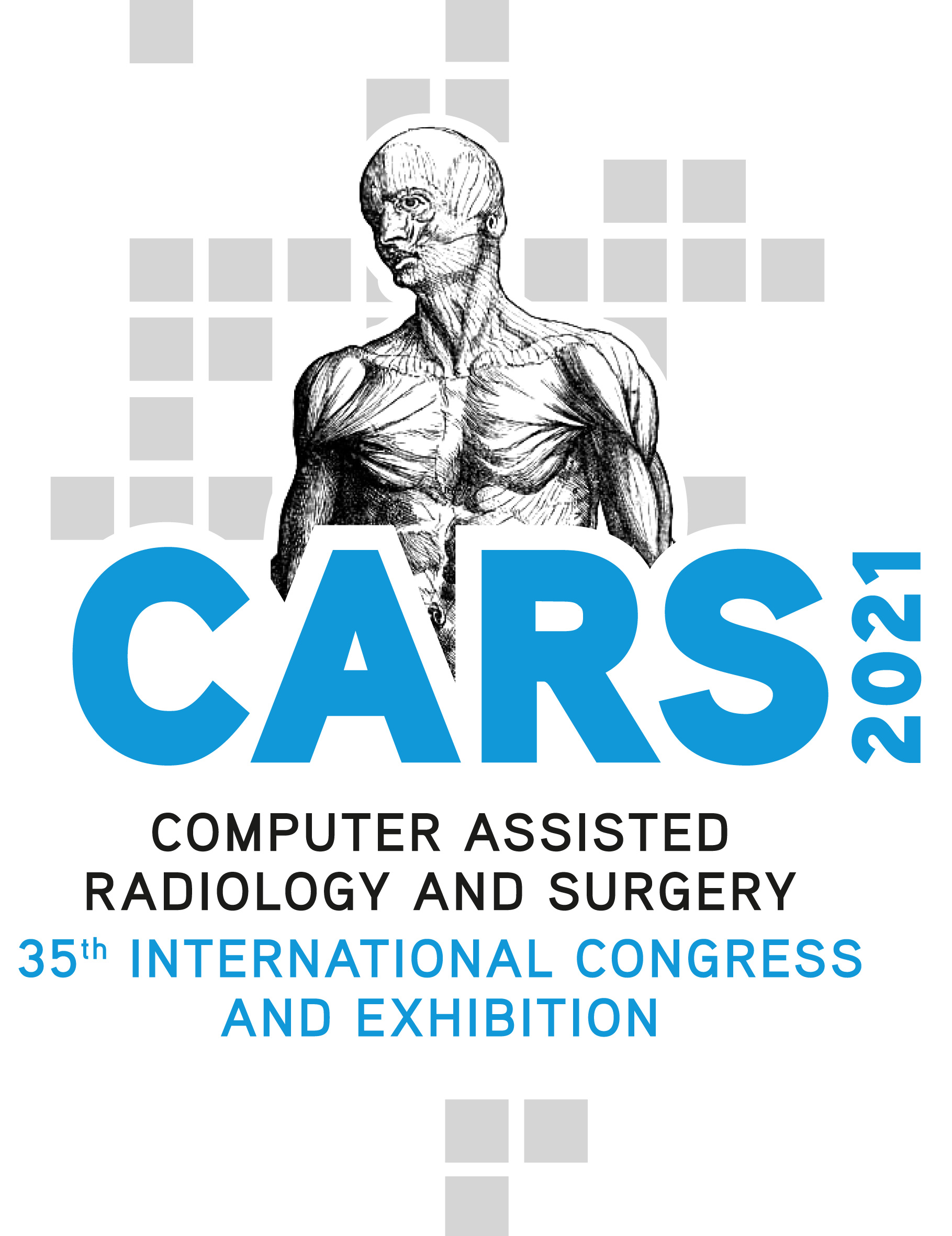
The event will be in a virtual format due to health and travel restrictions of the ongoing Covid-19 pandemic. IPCAI 2021 is endorsed by ISCAS and MICCAI.
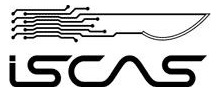
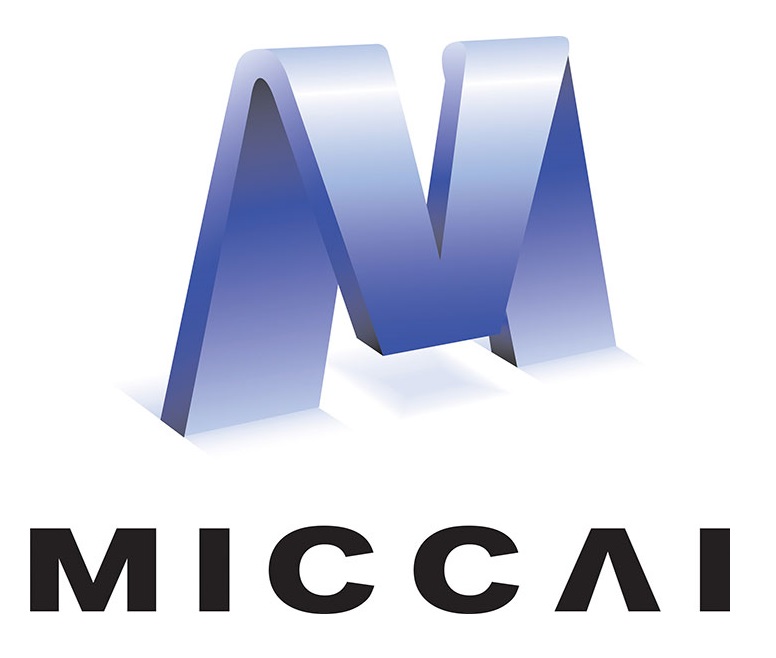 Back to top!
Back to top!
The conference format of IPCAI 2021 will consist of pre-recorded presentation videos available to the participants, so the videos can be watched in advance before the conference. During the event, at the beginning of each session all presenters will give short pitches, followed by a collective Q&A of all the papers in the session. During the breaks there will be short discussion opportunities with individual presenters, as in a poster session.
Archived links of the conference:
Link to all videos
Link to editorial of conference proceedings
Link to IJCARS - IPCAI 2021 Special Issue: 12th Conference on Information Processing for Computer-assisted Interventions - Part 1
Link to IJCARS - IPCAI 2021 Special Issue: 12th Conference on Information Processing for Computer-assisted Interventions - Part 2
June 22nd (CEST)
15:00 - 15:15 Welcome 15:15 - 15:45 S1: Machine Learning in Surgical Data Science 15:45 - 16:15 S2: Imaging 16:15 - 16:45 S3: Interventional Planning 16:45 - 17:30 Break and Posters (S1-3) 17:30 - 18:10 S4: Machine Learning in Ultrasound 18:10 - 18:50 S5: Prostate Interventions 18:50 - 19:30 Break and Posters (S4-5) 19:30 - 20:30 Panel discussion 20:30 - 21:15 Meet & Greet 21:15 Open-ended Social Event
June 23rd (CEST)
15:00 - 15:45 Long Abstracts 15:45 - 16:15 Break and Posters (LAs) 16:15 - 16:55 S6: Machine Learning in CAI 16:55 - 17:35 S7: Surgical Robotics 17:35 - 18:15 Break and Posters (S6-7) 18:15 - 18:45 S8: Training and Simulation 18:45 - 19:35 S9: Tracking and Localization 19:35 - 20:15 Break and Posters (S8-9) 20:15 - 21:00 Awards and Closing 21:00 Post-IPCAI Social Event
June 22nd
15:00 Welcome
15:15 Session S1: Machine Learning in Surgical Data Science
Session Chair: Anirban Mukhopadhyay, PhD (DE)
Simulation-to-Real domain adaptation with teacher-student learning for endoscopic instrument segmentation
Manish Sahu1*, Anirban Mukhopadhyay2, Stefan Zachow1
1Zuse Institute Berlin (DE); 2Technical University of Darmstadt (DE). [#04]
Video | Paper
Multi-Task Temporal Convolutional Networks for Joint Recognition of Surgical Phases and Steps in Gastric Bypass Procedures
Sanat Ramesh1,2*, Diego Dall'Alba1, Cristians Gonzalez3, Tong Yu2, Pietro Mascagni2,5, Didier Mutter3,4, Jacques Marescaux4, Paolo Fiorini1, Nicolas Padoy2
1University of Verona (IT); 2University of Strasbourg (FR); 3University Hospital of Strasbourg (FR); 4IRCAD (Strasbourg, FR); 5Fondazione Policlinico Universitario Agostino Gemelli IRCCS (Rome, IT). [#26]
Video |
Paper
Domain Adaptation and Self-Supervised Learning for Surgical Margin Detection
Alice ML Santilli1*, Amoon Jamzad1, Alireza Sedghi1, Martin Kaufmann1, Kathryn Logan1, Julie Wallis1, Kevin Yi Mi Ren1, Natasja Janssen1, Shaila Merchant1, Jay Engel1, Doug McKay1, Sonal Varma1, Ami Wang1, Gabor Fichtinger1, John Rudan1, Parvin Mousavi1
1Queen's University (Kingston, CA). [#33]
Video |
Paper
15:45 Session S2: Imaging
Session Chair: Stefanie Speidel, PhD (DE)
Metabolomics Patterns of Breast Cancer Tumors Using Mass Spectrometry Imaging
Rachel Theriault1*, Martin Kaufmann1, Kevin Yi Mi Ren1, Sonal Varma1, Randy E Ellis1
1Queen's University (Kingston, CA). [#08]
Video | Paper
Tattoo tomography: Freehand 3D photoacoustic image reconstruction with an optical pattern
Niklas Holzwarth1*, Melanie Schellenberg1, Janek Groehl1, Kris Dreher1, Jan-Hinrich Nölke1, Alexander Seitel1, Minu Dietlinde Tizabi1, Beat Peter Müller2, Lena Maier-Hein1,2
1German Cancer Research Center (Heidelberg, DE); 2University Hospital Heidelberg (DE). [#32]
Video | Paper
Speed-of-Sound Imaging using Diverging Waves
Richard Rau1*, Dieter Schweizer1, Valery Vishnevskiy1, Orcun Goksel1
1ETH Zurich (CH). [#37]
Video | Preprint
Paper
16:15 Session S3: Interventional Planning
Session Chair: Nicola Rieke, PhD (US)
Automatic Cortical Target Point Localisation in MRI for Transcranial Magnetic Stimulation via a Multi-Resolution Convolutional Neural Network
John SH Baxter1*, Ehouarn Maguet1, Quoc Anh Bui1, Stéphane Croci2, Antoine Delmas2, Jean-Pascal Lefaucheur3, Luc Bredoux2, Pierre Jannin1
1Université de Rennes 1 (FR); 2SYNEIKA (Rennes, FR); 3Paris Est Créteil University (FR). [#13]
Video | Paper
Automatic Identification of Sweet Spots from MERs for Electrodes Implantation in STN-DBS
Linxia Xiao1*, Caizi Li5, Yanjiang Wang1, Weixin Si5, Doudou Zhang3,4, Hai Lin3,4, Xiaodong Cai3,4, Pheng-Ann Heng2,5
1China University of Petroleum (CN); 2The Chinese Univsersity of Hong Kong (HK); 3Shenzhen Second People’s Hospital, the First Affiliated Hospital of Shenzhen University (CN); 4Shenzhen University School of Medicine (CN); 5Chinese Academy of Sciences (CN). [#15]
Video | Paper
Patient-specific Prediction of SEEG Electrode Bending for Stereotactic Neurosurgical Planning
Alejandro Granados1*, Yuxuan Han1, Oeslle Lucena1, Vejay Vakharia2, Roman Rodionov2, Sjoerd B. Vos2, Anna Miserocchi2, Andrew W. McEvoy2, John Duncan2, Rachel Sparks1, Sebastien Ourselin1
1King's College London (UK); 2National Hospital of Neurology and Neurosurgery, London (UK). [#30]
Video | Paper
16:45 Breaks and Posters (S1-3)
17:30 Session S4: Machine Learning in Ultrasound
Session Chair: Alexander Seitel, PhD (DE)
Time-Aware Deep Neural Networks for Needle Tip Localization in 2D Ultrasound
Cosmas Mwikirize1*, Ilker Hacihaliloglu2,3, John L Nosher2, Andrew Katumba1, Sylvia Imanirakiza1, Alvin Kimbowa1
1Makerere University (Kampala, UG); 2Rutgers Robert Wood Johnson Medical School (New Brunswick, US); 3Rutgers University (Piscataway, US). [#14]
Video |
Paper
Vessel Segmentation for Automatic Registration of Untracked Laparoscopic Ultrasound to CT of the Liver
Nina Montaña Brown1*, João Ramalhinho1, Moustafa Allam1, Brian Davidson1, Yipeng Hu1, Matthew J Clarkson1
1University College London (UK). [#23]
Video |
Paper
Learning Ultrasound Rendering from Cross-Sectional Model Slices for Simulated Training
Lin Zhang1*, Tiziano Portenier1, Orcun Goksel1,2
1ETH Zurich (CH); 2Uppsala University (SE). [#24]
Video |
Paper
Leveraging Voxel-wise Segmentation Uncertainty to Improve Reliability in Assessment of Paediatric Dysplasia of the Hip
Arunkumar Kannan1*, Antony J Hodgson1, Kishore Mulpuri2, Rafeef Abugharbieh1
1University of British Columbia(Vancouver, CA); 2British Columbia Children's Hospital (Vancouver, CA). [#51]
Video |
Paper
18:10 Session S5: Prostate Interventions
Session Chair: Purang Abolmaesumi, PhD (CA)
Towards Targeted Ultrasound-guided Prostate Biopsy by Incorporating Model and Label Uncertainty in Cancer Detection
Golara Javadi1*, Sharareh Bayat1, Samareh Samadi1, Alireza Sedghi2, Samira Sojoudi1, Antonio Hurtado-coll3, Silvia Chang3, Peter Black3, Parvin Mousavi2, Purang Abolmaesumi1
1University of British Columbia (Vancouver, CA); 2Queen's University (Kingston, CA); 3Vancouver General Hospital (Vancouver, CA). [#17]
Video |
Paper
Preclinical Evaluation of a Marker-less, Real-time, Augmented Reality Guidance System for Robot Assisted Radical Prostatectomy
Megha Kalia1*, Apeksha Avinash1, Nassir Navab2, Septimiu Salcudean1
1University of British Columbia (Vancouver, CA); 2TU Munich (DE). [#40]
Video | Paper
Centre-specific autonomous treatment plans for prostate brachytherapy using cGANs
Tajwar A Aleef1*, Ingrid Spadinger2, Michael Peacock2, Septimiu Salcudean1, Sara Mahdavi2
1University of British Columbia (Vancouver, CA); 2BC Cancer Agency (CA). [#43]
Video | Paper
An Office-Based MR System for Prostate Biopsy
Selin Chiragzada1*, Eva Hellman1, Duncan Michael1, Ram Narayanan1, Aleksandar Nacev1, Dinesh Kumar1
1Promaxo Inc. (Oakland, CA). [#48]
Video | Paper
18:50 Breaks and Posters (S4-5)
19:30 Panel Discussion (Details)
Moderation: Parvin Mousavi, PhD (CA); Alice Santilli, MSc Student (CA)
Panelists: Shekoofeh Azizi (AI Researcher at Google), Purang Abolmaesumi (Professor of Medical Imaging, Image Guided Therapy and Applied Machine Learning at UBC), David Pichora (President & CEO Kingston Health Sciences Centre), Lena Maier-Hein (Professor of Computer-assisted Medical Interventions at DKFZ), Fausto Milletari (Staff engineer at Johnson & Johnson)
20:30 Meet & Greet
21:15 Open-ended Social Event
June 23rd
15:00 Long Abstract Session
Session Chair: Matthew Clarkson, PhD (UK), Keno März, PhD (DE)
Pose optimization of X-ray protective shields for staff radiation exposure minimization
Alexandre Krebs1*, Cindy Rolland1, Juan JMV Verde2, Nicolas Padoy1,2
1University of Strasbourg, CNRS, IHU Strasbourg (FR); 2IHU Strasbourg (FR). [#53]
Video | (Paper not available yet)
Superpixel Tracking: Configurable Polynomial-Time Semantic Segmentation for Endoscope Video
W.-Y. Hong1, Chi-Sheng Shih1*
1National Taiwan University (Taipei, TW). [#54]
Video | (Paper not available yet)
CholecSeg8k: A Semantic Segmentation Dataset for Laparoscopic Cholecystectomy Based on Cholec80
W.-Y. Hong1, C.-L. Kao1, Y.-H. Kuo1, J.-R. Wang1, W.-L. Chang1, Chi-Sheng Shih1*
1National Taiwan University (Taipei, TW). [#55]
Video | Preprint
Paper
Colonoscopic 3D Reconstruction by Tubular Non-Rigid Structure-from-Motion
Agniva Sengupta1*, Adrien Bartoli2
1Université Clermont Auvergne (FR). [#56]
Video |
Paper
Learning 3D Medical Image Patch Descriptors with Triplet Loss
Nicolas Loiseau--Witon1,2*, Razmig Kechichian1, Sebastien Valette1, Adrien Bartoli2
1CREATIS (FR); 2Université Clermont Auvergne (FR). [#57]
Video | Preprint
Paper
SlicerAutoscoperM: Multi-modal Tracking of Skeletal Structures and Implants
Bardiya Akhbari1*, Amy Morton1, Lauren Welte2, Jillian Beveridge3, Jean-Christophe Fillion-Robin4, Michael Rainbow2, Beatriz Paniagua4, Joseph Crisco1
1Brown University (Providence, US); 2Queen's University (Kingston, CA); 3Cleveland Clinic (US); 4Kitware (US). [#59]
Video | (Paper not available yet)
Automation of Internal Limiting Membrane Peeling Task with Deep Reinforcement Learning
Mikinori Kanehara1*, Saul Alexis Heredia Perez1, Seiji Omata2, Fumihito Arai1, Koichiro Sugimoto3, Fumiyuki Araki3, Kiyohito Totsuka3, Tomoyasu Shiraya3, Takashi Ueta3, Muneyuki Takao3, Kanako Harada1, Mamoru Mitsuishi1
1The University of Tokyo (JP); 2Kumamoto University (JP); 3The University of Tokyo Hospital (JP). [#62]
Video | (Paper not available yet)
Image Recognition Applied to a Robotic Platform for Mouse Dissection
Taketo Inoue1*, Mamoru Mituishi1, Kanako Harada1
1The University of Tokyo (JP). [#63]
Video | (Paper not available yet)
15:45 Breaks and Posters (Long Abstracts)
16:15 Session S6: Machine Learning in Computer Assisted Interventions
Session Chair: Ka-Wai Kwok, PhD (HK)
Deep Learning to Segment Pelvic Bones: Large-scale CT Datasets and Baseline Models
Pengbo Liu1*, Hu Han1, Yuanqi Du3, Heqin Zhu1, Yinhao Li1, Feng Gu1,4, Honghu Xiao2, Jun Li1, Chunpeng Zhao2, Li Xiao1, Xinbao Wu2, S. Kevin Zhou1,5
1Chinese Academy of Sciences (Beijing, CN); 2Beijing Jishuitan Hospital (CN); 3George Mason University (Virginia, US); 4Beijing Electronics Science&Technology Institute (CN); 5University Of Science And Technology Of China (Suzhou, CN). [#07]
Video |
Paper
Against Spatial-Temporal Discrepancy: Contrastive Learning based Network for Surgical Workflow Recognition
Fucang Jia1,2, Tong Xia1,2*
1Shenzhen Institutes of Advanced Technology, Chinese Academy of Sciences (Shenzen, CN); 2University of Chinese Academy of Science (Beijing, CN). [#28]
Video |
Paper
Real-to-Virtual Domain Transfer-based Depth Estimation for Real-time 3D Annotation in Transnasal Surgery: A Study of Annotation Accuracy and Stability
Hon Sing Tong1*, Yui Lun Ng1, Zhiyu Liu1, Justin D.L. Ho1, Po-Ling Chan2, Catherine Chan2, Jason Y. K. Chan2, Ka-Wai Kwok1
1The University of Hong Kong (HK); 2The Chinese University of Hong Kong (HK). [#41]
Video |
Paper
Computer-assisted contralateral side comparison using flat panel technology
Sarina Thomas1*, Lisa Kausch1,2, Holger Kunze3, Maxim Privalov4, Andre Klein1,2, Jan Siad El Barbari4, Celia Martin Vicario3, Jochen Franke4, Klaus H. Maier-Hein1,2
1German Cancer Research Center (Heidelberg, DE); 2Universität Heidelberg (Heidelberg, DE); 3Siemens Healthineers (DE); 4Department for Trauma and Orthopaedic Surgery, BG Trauma Center Ludwigshafen (DE). [#42]
Video |
Paper
16:55 Session S7: Surgical Robotics
Session Chair: Omid Mohareri, PhD (US)
Cross-modal self-supervised representation learning for gesture and skill recognition in robotic surgery
Jie Ying Wu1*, Aniruddha Tamhane1, Peter Kazanzides1, Mathias Unberath1
1Johns Hopkins University (Baltimore, US). [#21]
Video |
Paper
Autonomous Pick-And-Place Using the dVRK
Claudia D'Ettorre1*, Agostino Stilli1, George Dwyeer1, Maxine Tran1, Danail Stoyanov1
1University College London (UK). [#35]
Video |
Paper
An Intuitive Surgical Handle Design for Robotic Neurosurgery
Emmanouil Dimitrakakis1*, Lukas Lindenroth1, George Dwyer1, Holly Aylmore2, Neil Dorward3, Hani Marcus1,2,3, Danail Stoyanov1
1University College London (UK); 2UCL Queen Square Institute of Neurology (London, UK); 3National Hospital for Neurology and Neurosurgery (London, UK). [#44]
Video |
Paper
Mask then Classify: Multi-Instance Segmentation for Surgical Instruments
Thomas Kurmann1*, Pablo Márquez Neila1, Maximilian Allan2, Sebastian Wolf3, Raphael Sznitman1
1University of Bern (CH); 2Intuitive Surgical (US); 3University Hospital of Bern (CH). [#49]
Video |
Paper
17:35 Breaks and Posters (S6-7)
18:15 Session S8: Training and Simulation
Session Chair: Ingerid Reinersten, PhD (NO)
Comparison of Augmented Reality-based and Conventional Training for ECMO Cannulation
Julian Wolf1*, Viviane Wolfer1, Maximilian Halbe2, Francesco Maisano3, Quentin Lohmeyer1, Mirko Mebolt1
1ETH Zurich (CH); 2University Hospital Zurich (CH); 3University of Zurich (CH). [#12]
Video |
Paper
Automatic extraction of the mitral valve chordae geometry for biomechanical simulation
Daryna Panicheva1*, Pierre-Frederic Villard1,2, Peter Hammer3, Douglas Perrin2,3, Marie-Odile Berger1
1University of Lorraine, CNRS, Inria, LORIA (FR); 2Harvard School of Engineering and Applied Sciences (US); 3Harvard Medical School (US). [#18]
Video |
Paper
Automatic Triangulated Mesh Generation of Pulmonary Airways from 3DCTs for Computational Fluid Dynamics
Michael Lauria1*, Kamal Singhrao1, Brad Stiehl1, Daniel Low1, Jonathan Goldin1, Igor Barjaktarevic1, Anand P Santhanam1
1University of California (US). [#19]
Video | Paper
18:45 Session 9: Tracking and Localization
Session Chair: Phillippe Cattin, PhD (CH)
Predictive online 3D target tracking with population-based generative networks for image-guided radiotherapy
Liset Vazquez Romaguera1*, Tal Mezheritsky1, Rihab Mansour3, William Tanguay2, Samuel Kadoury1
1École Polytechnique de Montreal (CA); 2Faculty of Medicine, University of Montreal (CA); 3University of Montreal (CA). [#02]
Video |
Paper
CycleGAN for Interpretable Online EMT Compensation
Henry J Krumb1*, Dhritimaan Das2, Romol Chadda1, Anirban Mukhopadhyay1
1TU Darmstadt (DE); 2Indian Institute of Technology (IIT-BHU), Varanasi (IN). [#09]
Video |
Paper
Towards Markerless Surgical Tool and Hand Pose Estimation
Jonas Hein1,2*, Matthias Seibold1,3, Federica Bogo4, Mazda Farshad5, Marc Pollefeys2,4, Philipp Fürnstahl1, Nassir Navab3
1University of Zurich; 2ETH Zurich (CH); 3TU Munich (DE); 4Microsoft (CH); 5Balgrist University Hospital Zurich (CH). [#11]
Video |
Paper
Fast and Robust Localization of Surgical Array using Kalman Filter
Md Ashikuzzaman1*, Noushin Jafarpisheh1, Sunil Rottoo2, Pierre Brisson2, Hassan Rivaz1
1Concordia University (Montreal, CA); 2THINK Surgical Inc. (CA). [#31]
Video |
Paper
Automating Periodontal Bone Loss Measurement via Dental Landmark Localisation
Raymond P Danks1*, Sophia Bano1, Anastasiya Orishko2, Hong Jin Tan2, Federico Moreno Sancho2, Francesco D'Aiuto2, Danail Stoyanov1
1University College London (UK); 2University College London Eastman Dental Institute (London, UK). [#46]
Video |
Paper
19:35 Breaks and Posters (S8-9)
20:15 Awards and Closing
21:00 Post-IPCAI Social Event
During the conference the following prizes were awarded. We thank our Sponsors for cash and non-cash prizes.
Best Paper Award
1st place awarded to paper #02: Predictive online 3D target tracking with population-based generative networks for image-guided radiotherapy Liset Vázquez Romaguera, Tal Mezheritsky, Rihab Mansour, William Tanguay, Samuel Kadoury
Runner-up awarded to paper #37: Speed-of-Sound Imaging using Diverging Waves Richard Rau, Dieter Schweizer, Valery Vishnevskiy, Orcun Goksel
Machine Learning for CAI Award
1st place awarded to paper #17: Towards Targeted Ultrasound-guided Prostate Biopsy by Incorporating Model and Label Uncertainty in Cancer Detection Golara Javadi, Sharareh Bayat, Samareh Samadi, Alireza Sedghi, Samira Sojoudi, Antonio Hurtado, Silvia Chang, Peter Black, Parvin Mousavi, Purang Abolmaesumi
Runner-up awarded to paper #21: Cross-modal self-supervised representation learning for gesture and skill recognition in robotic surgery Jie Ying Wu, Aniruddha Tamhane, Peter Kazanzides, Mathias Unberath
Bench-to-Bedside Award
1st place awarded to paper #40: Preclinical Evaluation of a Marker-less, Real-time, Augmented Reality Guidance System for Robot Assisted Radical Prostatectomy Megha Kalia, Apeksha Avinash, Nassir Navab, Septimiu Salcudean
Runner-up awarded to paper #33: Domain Adaptation and Self-Supervised Learning for Surgical Margin Detection Alice M.L. Santilli, Amoon Jamzad, Alireza Sedghi, Martin Kaufmann, Kathryn Logan, Julie Wallis, Kevin Y.M Ren, Natasja Janssen, Shaila Merchant, Jay Engel, Doug McKay, Sonal Varma, Ami Wang, Gabor Fichtinger, John F. Rudan, Parvin Mousavi
Audience Award for Best Innovation
1st place awarded to paper #44: An Intuitive Surgical Handle Design for Robotic Neurosurgery Emmanouil Dimitrakakis, Lukas Lindenroth, George Dwyer, Holly Aylmore, Neil L Dorward, Hani J Marcus, Danail Stoyanov
Runner-up awarded to paper #32: Tattoo tomography: Freehand 3D photoacoustic image reconstruction with an optical pattern Niklas Holzwarth, Melanie Schellenberg, Janek Gröhl, Kris Dreher, Jan-Hinrich Nölke, Alexander Seitel, Minu D Tizabi, Beat P Müller-Stich, Lena Maier-Hein
Audience Award for Best Presentation
1st place awarded to paper #35: Autonomous Pick-And-Place Using the dVRK Claudia D'Ettorre, Agostino Stilli, George Dwyeer, Maxine Tran, Danail Stoyanov
Runner-up awarded to paper #08: Metabolomics Patterns of Breast Cancer Tumors Using Mass Spectrometry Imaging Rachel L. Theriault, Martin Kaufmann, Kevin Yi Mi Ren, Sonal Varma, Randy E. Ellis
During the panel, moderator Parvin Mousavi will discuss future research topics as well as the impact of the pandemic on research with renowned guests.






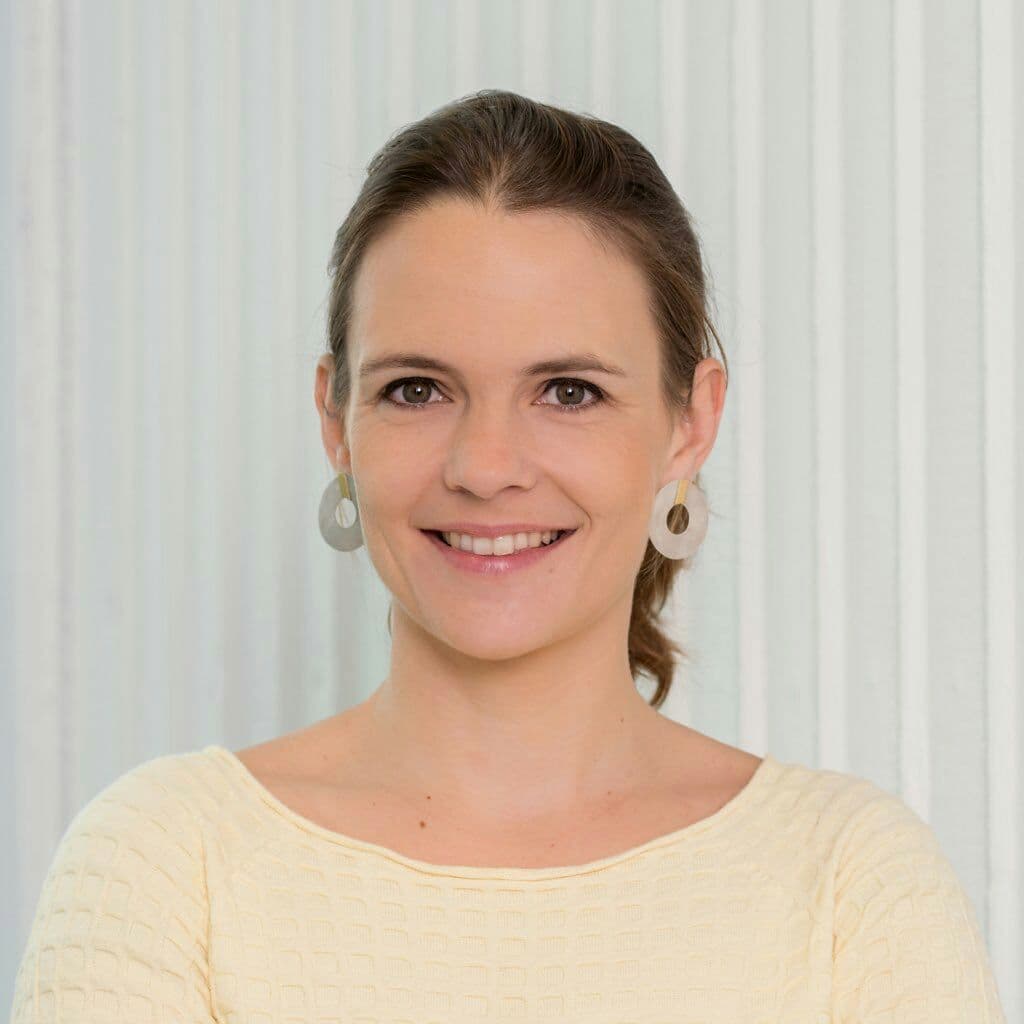
IPCAI is generously supported by the following industrial partners:
Northern Digital Inc. (NDI)
103 Randall Drive, Waterloo, Ontario, Canada N2V 1C5
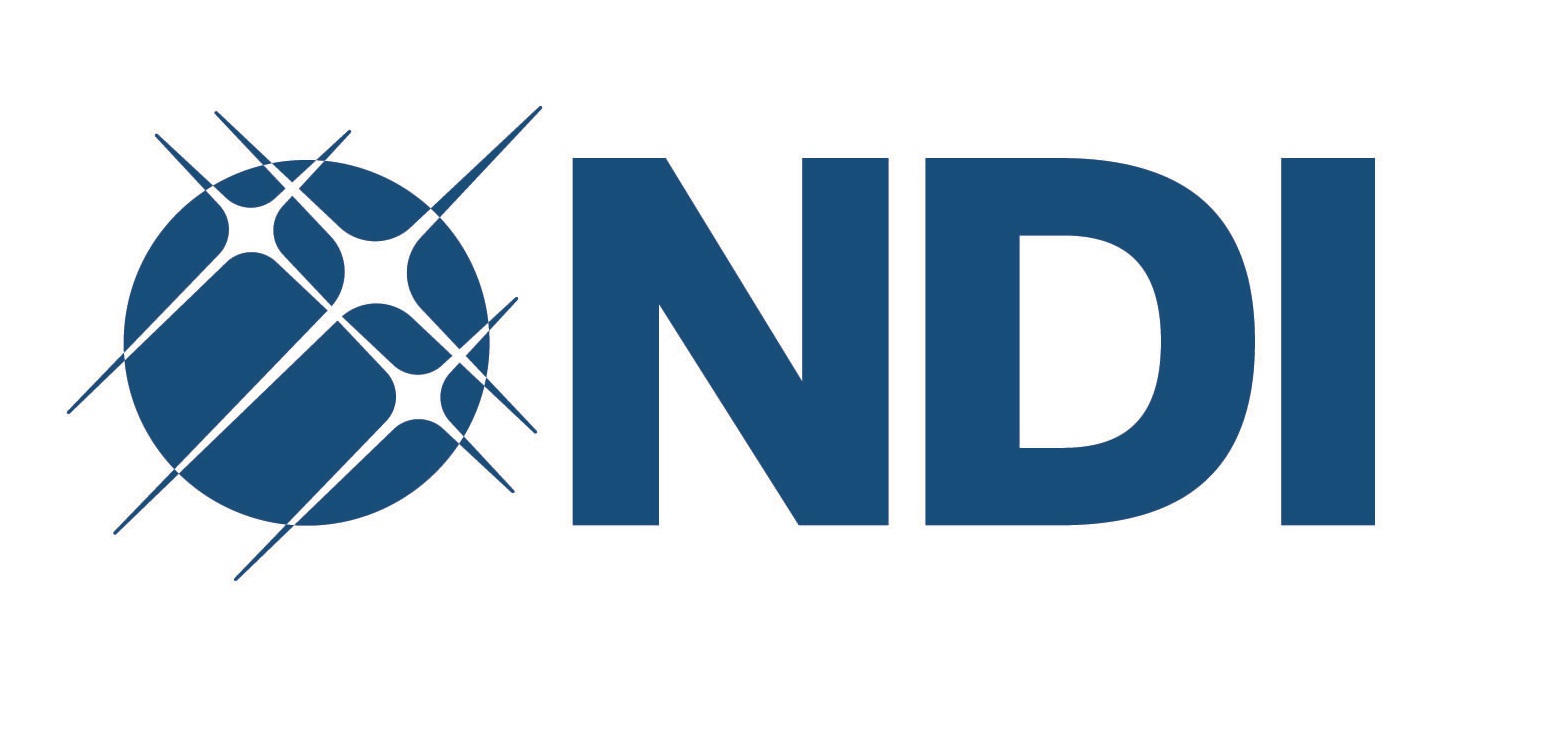 Intuitive Surgical, Inc.
1020 Kifer Road, Sunnyvale, CA 94086-5304, US
Intuitive Surgical, Inc.
1020 Kifer Road, Sunnyvale, CA 94086-5304, US
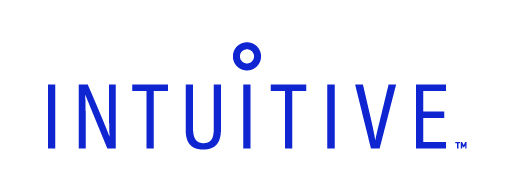 Auris Health, Inc.
150 Shoreline Dr, Redwood City, CA 94065-1400, US
Auris Health, Inc.
150 Shoreline Dr, Redwood City, CA 94065-1400, US
 Nvidia Corporation
2788 San Tomas Expy, Santa Clara, CA 95051-0952, US
Nvidia Corporation
2788 San Tomas Expy, Santa Clara, CA 95051-0952, US
.png)
Submission of manuscripts was possible until 22 January 2021. We thank all authors for sending their contributions. IPCAI is a premiere international forum for technical innovations, system development and clinical studies in computer assisted interventions (CAI). Submissions of original works are encouraged within the broad areas of interest of CAI and specifically in:
Surgical data science
Interventional imaging
Systems and software
Evaluation and validation
Tracking and navigation
Interventional robotics
Surgical planning and simulation
Advanced intra-operative visualization and user interfaces
Augmented Reality for medical applications
Surgical skill analysis and workflow
Regular Papers
|
Regular Paper submission |
18 December 2021: |
Start of author notification on review feedback and early decisions |
18 January 2021: |
Revisions and rebuttals due |
24 February 2021: |
Notification of decisions |
Accepted papers will be transferred to the International Journal of Computer Assisted Radiology and Surgery (IJCARS) for further revisions, if required, to be considered for publication as a full paper in a regular journal issue, indexed in PubMed. Submissions are in IJCARS format, up to 13 pages (Submission details). Long Abstracts Alternative to regular long papers, you will also have the opportunity to submit long abstracts to showcase to the CAI community your novel ideas, software platforms, or recent breakthroughs, including those with preliminary but limited experimental validation. Accepted long abstracts will be presented as oral and/or poster presentations at IPCAI.
|
Long Abstract submission |
24 February 2021: |
Notification of decisions |
Submissions are in LNCS format, 4 pages long (Submission details).
Regular Papers Submissions are in International Journal of Computer Assisted Radiology and Surgery (IJCARS) format, up to 13 pages for Regular Papers.
LaTex: a style file (SVJour3) is available from Springer’s website. If you use this style file use the first option in the template as your document class, “one column (standard format)”.
Word: unfortunately, we do not have a word template. Your text will need to fit inside a 7.25″x4.5″ (18.415 cm x 11.43 cm) region. Text font should be set to Times new roman 10 pt. Captions and reference font should be set to Times new roman 9 pt. We encourage the use of the LaTex template.
Regular Paper submission deadline passed. To manage submissions, reviews, etc. please use Microsoft's Conference Management Toolkit (CMT): click HERE for IPCAI 2021 in CMT. Long Abstracts Submissions for Long Abstracts are in Lecture Notes in Computer Science (LNCS) format, up to 4 pages. The LNCS LaTeX template should be used to prepare the paper drafts in PDF format.
Long Abstract submission deadline passed. To manage submissions, reviews, etc. please use Microsoft's Conference Management Toolkit (CMT): click HERE for IPCAI 2021 in CMT.

Program Chairs
Alfred M. Franz, Ulm University of Applied Sciences (THU), Germany Orcun Goksel, ETH Zurich, Switzerland & Uppsala University, SwedenGeneral Chairs
Lena Maier-Hein, German Cancer Research Center (DKFZ), Germany Tim Salcudean, The University of British Columbia (UBC), Canada Stefanie Speidel, National Center for Tumor Diseases (NCT), GermanyArea Chairs
Alexander Seitel, German Cancer Research Center (DKFZ), Germany Anirban Mukhopadhyay, Technical University of Darmstadt, Germany Ingerid Reinersten, SINTEF, Norway Junchen Wang, University of Tokyo, Japan Ka-Wai Kwok, The University of Hong Kong, China Keno März, German Cancer Research Center (DKFZ), Germany Matt Clarkson, University College London, UK Mehdi Moradi, IBM Almaden Research Center, US Nicola Rieke, Nvidia Corporation, US Nicolas Padoy, University of Strasbourg, France Omid Mohareri, Intuitive Surgery, US Phillippe Cattin, University of Basel, Switzerland Rachel Sparks, King’s College London, UK Robert Rohling, The University of British Columbia, Canada Shekoofeh Azizi, Google Research, US Stéphane Cotin, INRIA, FR Tamas Ungi, Queen's University, Canada Tina Kapur, Brigham and Women's Hospital, US Wolfgang Wein ImFusion, GermanySteering Committee
Purang Abolmaesumi, University of British Columbia, Canada Kevin Cleary, Children’s National Medical Center, US Gabor Fichtinger, Queen’s University, Canada Makoto Hashizume, Kyushu University, Japan David Hawkes, University College London, UK Pierre Jannin, Université de Rennes, France Leo Joskowicz, The Hebrew University of Jerusalem, Israel Ron Kikinis, Brigham and Women’s Hospital, US Heinz Lemke, Technical University of Berlin & IFCARS, Germany Kensaku Mori, Nagoya University, Japan Parvin Mousavi, Queen’s University, Canada Nassir Navab, Technical University of Munich, Germany & Johns Hopkins University, US Terry Peters, Western University, Canada Ichiro Sakuma, The University of Tokyo, Japan Danail Stoyanov, University College London, UK Russell Taylor, Johns Hopkins University, US